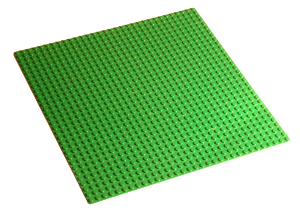Source code for baseplate.clients.memcache.lib
"""Memcache serialization/deserialization (and compression) helper methods.
Memcached can only store strings, so to store arbitrary objects we need to
serialize them to strings and be able to deserialize them back to their
original form.
New services should use dump_and_compress() and decompress_and_load().
Services that need to read and write to the same memcache instances as r2
should use pickle_and_compress() and decompress_and_unpickle().
"""
import json
import logging
import pickle
import zlib
from typing import Any
from typing import Callable
from typing import Tuple
class Flags:
"""Memcached client flags.
Flags are an arbitrary 16-bit unsigned integer that the memcache server
stores along with the data and sends back when the item is retrieved.
Clients may use this as a bit field to store data-specific information;
this field is opaque to the server.
"""
JSON = 1 << 0
INTEGER = 1 << 1
LONG = 1 << 2
ZLIB = 1 << 3
[docs]def decompress_and_load( # pylint: disable=unused-argument
key: str, serialized: bytes, flags: int
) -> Any:
"""Deserialize data.
This should be paired with
:py:func:`~baseplate.clients.memcache.lib.make_dump_and_compress_fn`.
:param key: the memcached key.
:param serialized: the serialized object returned from memcached.
:param flags: value stored and returned from memcached for the client
to use to indicate how the value was serialized.
:returns: The deserialized value.
"""
if flags & Flags.ZLIB:
serialized = zlib.decompress(serialized)
flags ^= Flags.ZLIB
if flags == 0:
return serialized
if flags in (Flags.INTEGER, Flags.LONG):
# python3 doesn't have a long integer type, so all integers are written
# with Flags.INTEGER. This means that a value written by a python3
# client can exceed the maximum integer value (sys.maxint). This
# appears to be ok--python2 will automatically convert to long if the
# value is too large.
return int(serialized)
if flags == Flags.JSON:
try:
return json.loads(serialized)
except ValueError:
logging.info("json error", exc_info=True)
return None
logging.info("unrecognized flags")
return serialized
[docs]def make_dump_and_compress_fn(
min_compress_length: int = 0, compress_level: int = 1
) -> Callable[[str, Any], Tuple[bytes, int]]:
"""Make a serializer.
This should be paired with
:py:func:`~baseplate.clients.memcache.lib.decompress_and_load`.
The resulting method is a chain of :py:func:`json.loads` and ``zlib``
compression. Values that are not JSON serializable will result in a
:py:exc:`TypeError`.
:param min_compress_length: the minimum serialized string length to
enable zlib compression. 0 disables compression.
:param compress_level: zlib compression level. 0 disables compression
and 9 is the maximum value.
:returns: The serializer.
"""
assert min_compress_length >= 0
assert 0 <= compress_level <= 9
def dump_and_compress( # pylint: disable=unused-argument
key: str, value: Any
) -> Tuple[bytes, int]:
"""Serialize a Python object in a way compatible with decompress_and_load().
:param key: the memcached key.
:param value: python object to be serialized and set to memcached.
:returns: value serialized as str, flags int.
:raises ValueError: if `value` is not JSON serializable
"""
if isinstance(value, str):
serialized = value.encode("utf8")
flags = 0
elif isinstance(value, bytes):
serialized = value
flags = 0
elif isinstance(value, int):
serialized = f"{value:d}".encode()
flags = Flags.INTEGER
else:
# NOTE: json.dumps raises ValueError if `value` is not serializable
serialized = json.dumps(value).encode("utf8")
flags = Flags.JSON
if compress_level and min_compress_length and len(serialized) > min_compress_length:
serialized = zlib.compress(serialized, compress_level)
flags |= Flags.ZLIB
return serialized, flags
return dump_and_compress
class PickleFlags:
"""Memcached client flags.
Flags are an arbitrary 16-bit unsigned integer that the memcache server
stores along with the data and sends back when the item is retrieved.
Clients may use this as a bit field to store data-specific information;
this field is opaque to the server.
"""
PICKLE = 1 << 0
INTEGER = 1 << 1
LONG = 1 << 2
ZLIB = 1 << 3
[docs]def decompress_and_unpickle( # pylint: disable=unused-argument
key: str, serialized: bytes, flags: int
) -> Any:
"""Deserialize data stored by ``pylibmc``.
.. warning:: This should only be used when sharing caches with applications
using ``pylibmc`` (like r2). New applications should use the safer and
future proofed
:py:func:`~baseplate.clients.memcache.lib.decompress_and_load`.
:param key: the memcached key.
:param serialized: the serialized object returned from memcached.
:param flags: value stored and returned from memcached for the client
to use to indicate how the value was serialized.
:returns: the deserialized value.
"""
if flags & PickleFlags.ZLIB:
serialized = zlib.decompress(serialized)
flags ^= PickleFlags.ZLIB
if flags == 0:
return serialized
if flags in (PickleFlags.INTEGER, PickleFlags.LONG):
# python3 doesn't have a long integer type, so all integers are written
# with PickleFlags.INTEGER. This means that a value written by a python3
# client can exceed the maximum integer value (sys.maxint). This
# appears to be ok--python2 will automatically convert to long if the
# value is too large.
return int(serialized)
if flags == PickleFlags.PICKLE:
try:
return pickle.loads(serialized)
except Exception:
logging.info("Pickle error", exc_info=True)
return None
logging.info("unrecognized flags")
return serialized
[docs]def make_pickle_and_compress_fn(
min_compress_length: int = 0, compress_level: int = 1
) -> Callable[[str, Any], Tuple[bytes, int]]:
"""Make a serializer compatible with ``pylibmc`` readers.
The resulting method is a chain of :py:func:`pickle.dumps` and ``zlib``
compression. This should be paired with
:py:func:`~baseplate.clients.memcache.lib.decompress_and_unpickle`.
.. warning:: This should only be used when sharing caches with applications
using ``pylibmc`` (like r2). New applications should use the safer and
future proofed
:py:func:`~baseplate.clients.memcache.lib.make_dump_and_compress_fn`.
:param min_compress_length: the minimum serialized string length to
enable zlib compression. 0 disables compression.
:param compress_level: zlib compression level. 0 disables compression
and 9 is the maximum value.
:returns: the serializer method.
"""
assert min_compress_length >= 0
assert 0 <= compress_level <= 9
def pickle_and_compress( # pylint: disable=unused-argument
key: str, value: Any
) -> Tuple[bytes, int]:
"""Serialize a Python object in a way compatible with decompress_and_unpickle().
:param key: the memcached key.
:param value: python object to be serialized and set to memcached.
:returns: value serialized as str, flags int.
"""
if isinstance(value, str):
serialized = value.encode("utf8")
flags = 0
elif isinstance(value, bytes):
serialized = value
flags = 0
elif isinstance(value, int):
serialized = f"{value:d}".encode()
flags = PickleFlags.INTEGER
else:
# use protocol 2 which is the highest value supported by python2
serialized = pickle.dumps(value, protocol=2)
flags = PickleFlags.PICKLE
if compress_level and min_compress_length and len(serialized) > min_compress_length:
serialized = zlib.compress(serialized, compress_level)
flags |= PickleFlags.ZLIB
return serialized, flags
return pickle_and_compress

